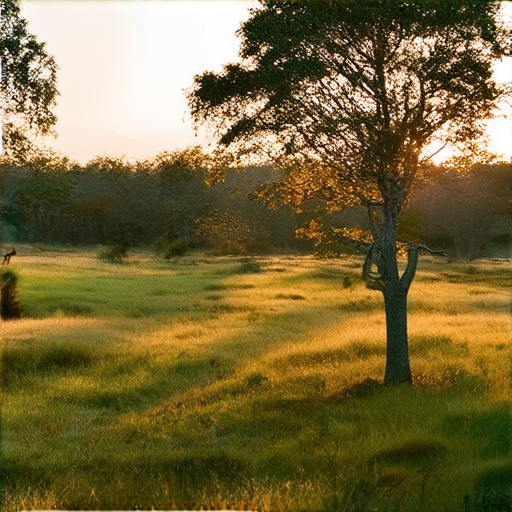Are you passionate about making a difference in the lives of animals and the environment? If so, volunteering for wildlife conservation efforts may be the perfect way to channel your enthusiasm into tangible actions. With numerous organizations and initiatives dedicated to protecting and preserving wildlife habitats, there are countless opportunities to get involved and contribute to the well-being of our planet’s precious species. From participating in wildlife conservation volunteer programs to volunteering at local animal shelters and zoos, every effort counts in the fight against extinction and habitat destruction.

Getting Involved in Wildlife
To get involved in wildlife, start by exploring local organizations focused on conservation and wildlife preservation.
-
Talk to representatives from organizations such as Fish and Game, Bureau of Land Management, or Forest Service near your location.
-
Volunteer opportunities often arise through these organizations, allowing you to gain hands-on experience and develop skills in wildlife conservation.
-
Consider participating in citizen science projects, which enable individuals to contribute to scientific research and monitoring efforts in wildlife populations.
-
Join online communities and forums dedicated to wildlife enthusiasts, where you can connect with others sharing similar interests and learn about various initiatives and projects.
-
Pursue educational programs or certifications in fields related to wildlife conservation, such as biology, ecology, or environmental science.
-
Network with professionals in the field and attend conferences or workshops to stay updated on the latest developments and best practices in wildlife conservation.
-
Support reputable organizations working towards wildlife conservation by donating, spreading awareness, or advocating for policies that protect wildlife habitats and species.
Volunteering Opportunities
Many organizations offer volunteering opportunities for those interested in getting involved in wildlife conservation.
-
National Park Service: Participate in park cleanups, habitat restoration, and wildlife monitoring projects.
-
The Nature Conservancy: Contribute to conservation efforts, such as planting trees, removing invasive species, and monitoring wildlife populations.
-
World Wildlife Fund: Assist with conservation projects, including animal tracking, habitat restoration, and community engagement.
Citizen Science Projects
Citizen science projects allow individuals to contribute to scientific research and monitoring efforts in wildlife populations.
-
Zooniverse: Participate in projects such as bird identification, species classification, and wildlife monitoring.
-
iNaturalist: Record observations of plants and animals, contributing to biodiversity research and conservation efforts.
-
Citizen Science Alliance: Engage in projects focusing on wildlife monitoring, habitat assessment, and species conservation.
Education and Certifications
Pursuing educational programs or certifications in fields related to wildlife conservation can enhance your knowledge and skills.
-
Bachelor’s degree in Biology, Ecology, or Environmental Science: Develop a strong foundation in wildlife conservation principles and practices.
-
Certified Wildlife Biologist (CWB): Obtain certification demonstrating expertise in wildlife management and conservation.
-
Wildlife Conservation Society (WCS) Certification Program: Acquire training and certification in wildlife conservation and management.
Do Zoo Volunteers Get Paid?
Zoo volunteers play a vital role in supporting the daily operations of zoos and wildlife sanctuaries.
- They assist with animal care, education programs, and conservation efforts.
- Many zoos rely heavily on volunteer support to manage their facilities and interact with visitors.
Compensation for Zoo Volunteers
The compensation for zoo volunteers varies widely depending on the institution, location, and type of volunteer work.
- In the United States, the average hourly wage for a zoo volunteer is around $18-$20 per hour.
- Some zoos may offer stipends or reimbursement for expenses incurred during volunteer work.
- Other institutions may provide free admission to events or exclusive access to behind-the-scenes tours.
Factors Affecting Compensation
The level of compensation for zoo volunteers can depend on several factors:
- Type of volunteer work: Animal care, education, or administrative tasks may have varying levels of compensation.
- Location: Zoos in urban areas may offer higher compensation compared to those in rural areas.
- Institution size: Larger zoos may have more resources to allocate towards volunteer compensation.
Benefits of Volunteering at a Zoo
While compensation may vary, volunteering at a zoo offers numerous benefits:
- Gain hands-on experience in animal care and conservation.
- Develop valuable skills in education, marketing, and event planning.
- Network with professionals in the field and build connections.
Conclusion
Zoo volunteers play a crucial role in supporting the mission and goals of zoos and wildlife sanctuaries.
While compensation may differ, the benefits of volunteering at a zoo far outweigh the potential drawbacks.
Whether you’re looking to gain experience, network, or simply give back to your community, consider volunteering at a local zoo today!

Do Animal Shelter Volunteers Get Paid?
No, animal shelter volunteers typically do not receive payment for their services.
- The primary reason for this is that most animal shelters rely heavily on donations and grants to operate, and paying volunteers would be a significant expense.
- Additionally, many animal shelters view volunteering as a way to give back to the community and help animals in need, rather than as a source of income.
Why Don’t Animal Shelters Pay Their Volunteers?
There are several reasons why animal shelters often don’t pay their volunteers:
- Limited Funding: Many animal shelters have limited budgets and rely on donations and grants to cover their expenses.
- Volunteer Motivation: Volunteers are often motivated by a desire to help animals in need, rather than by financial gain.
- Efficient Use of Resources: By not paying volunteers, animal shelters can allocate their resources more efficiently and focus on providing care and services to animals.
What Benefits Do Animal Shelter Volunteers Receive?
While animal shelter volunteers may not receive payment, they often receive other benefits, including:
- Hands-on Experience: Volunteers gain hands-on experience working with animals and learning about animal welfare and care.
- Networking Opportunities: Volunteers meet other animal lovers and professionals in the field, potentially leading to job opportunities or networking connections.
- Satisfaction and Fulfillment: Volunteers feel a sense of satisfaction and fulfillment knowing they’re making a difference in the lives of animals.
Conclusion:
In conclusion, animal shelter volunteers typically do not receive payment for their services due to limited funding, volunteer motivation, and efficient use of resources. However, volunteers often receive valuable benefits, including hands-on experience, networking opportunities, and satisfaction and fulfillment from helping animals in need.

Does WWF Take Volunteers?
As a passionate traveler and volunteer, I’m always eager to learn about opportunities to give back to the environment and wildlife.
- The World Wildlife Fund (WWF) is a leading international organization dedicated to conservation efforts worldwide.
- However, according to their website, WWF does not currently have opportunities for volunteers due to limited office staffing and lack of local chapters.
Why Can’t WWF Use Volunteers Effectively?
Without local chapters, it can be challenging for WWF to utilize volunteers effectively, which is why they don’t have volunteer programs in place at this time.
Alternative Ways to Get Involved
If you’re interested in volunteering for environmental causes, there are many other organizations that offer opportunities to get involved:
- Audubon Society offers various volunteer opportunities for bird conservation and habitat restoration.
- Sierra Club has a range of volunteer programs focused on environmental activism and conservation.
- The World Canvass is a platform that connects travelers with volunteer opportunities around the world.
How to Stay Informed About WWF Volunteer Opportunities
To stay updated on potential volunteer opportunities with WWF, I recommend checking their website regularly or signing up for their newsletter:
Conclusion
While WWF doesn’t currently have volunteer opportunities, there are many other organizations that offer chances to get involved in environmental conservation and wildlife preservation.
Types of Volunteer Opportunities for Wildlife Conservation and Rehabilitation
I’m excited to share my passion for wildlife conservation and rehabilitation with you, and I hope you’ll join me on this journey.
-
Animal Care
As a wildlife volunteer, you can assist with daily animal care tasks, such as feeding, cleaning enclosures, and monitoring animal health.
- Assist with animal feedings and provide fresh water
- Clean and disinfect animal enclosures
- Monitor animal behavior and report any changes to staff
-
Habitat Restoration
Habitat restoration involves working to restore damaged or degraded habitats to their natural state.
- Plant native vegetation and trees
- Remove invasive species and debris
- Install fencing and signage to protect the restored area
-
Research and Monitoring
Volunteers can assist researchers with data collection, species identification, and habitat monitoring.
- Collect data on animal populations and behavior
- Identify and record species sightings
- Conduct habitat assessments and monitor ecosystem health
-
Education and Outreach
Share your knowledge and passion for wildlife conservation with others through educational programs and outreach events.
- Develop and lead educational programs for schools and communities
- Create educational materials and resources
- Participate in outreach events and festivals
-
Conservation Projects
Get involved in hands-on conservation projects, such as tree planting, beach cleanups, and wildlife surveys.
- Participate in tree planting and habitat restoration efforts
- Join beach cleanups and remove trash and debris
- Conduct wildlife surveys and monitor population trends
I’m proud to partner with organizations like World Wildlife Fund and Defenders of Wildlife to provide opportunities for wildlife conservation and rehabilitation.
Remember, every small action counts, and together we can make a big impact on protecting our planet’s precious wildlife.

Make a Difference Near You: Top Ways to Volunteer for Wildlife Conservation and Rehabilitation Efforts
Discover local opportunities to make a real difference by volunteering for wildlife conservation and rehabilitation efforts near you. From animal sanctuaries to national parks, find top ways to get involved today!
-
Volunteer at Local Animal Shelters
Many animal shelters have programs in place for wildlife rehabilitation, and volunteering can be a great way to gain hands-on experience.
- Check with local shelters to see what types of animals they care for and how you can assist.
- Consider volunteering for tasks such as cleaning cages, feeding animals, and assisting with medical procedures.
-
Join a Wildlife Conservation Organization
There are many organizations dedicated to protecting and conserving wildlife populations around the world.
- Research organizations such as the World Wildlife Fund (WWF), the International Union for Conservation of Nature (IUCN), and the Wildlife Conservation Society (WCS).
- Look into volunteer opportunities such as habitat restoration, species monitoring, and education outreach.
-
Participate in Citizen Science Projects
Citizen science projects allow individuals to contribute to scientific research and conservation efforts through hands-on participation.
- Search for projects focused on wildlife conservation, such as bird counts, plant surveys, and water quality monitoring.
- Many organizations, such as Zooniverse and SciStarter, offer platforms for finding and participating in citizen science projects.
-
Support Local Conservation Efforts
Get involved in local initiatives aimed at protecting and preserving wildlife habitats and ecosystems.
- Attend community events, such as clean-up days and tree planting ceremonies.
- Donate to local conservation groups or participate in fundraising campaigns.
-
Take Online Courses or Training Programs
Expand your knowledge and skills in wildlife conservation through online courses or training programs.
- Explore platforms such as Coursera, edX, and Udemy for courses on topics like wildlife biology, ecology, and conservation.
- Look into certification programs offered by organizations like the International Association for Wildlife Veterinarians (IAWV).
By getting involved in these ways, you can make a meaningful contribution to wildlife conservation and rehabilitation efforts near you.




0 Comments